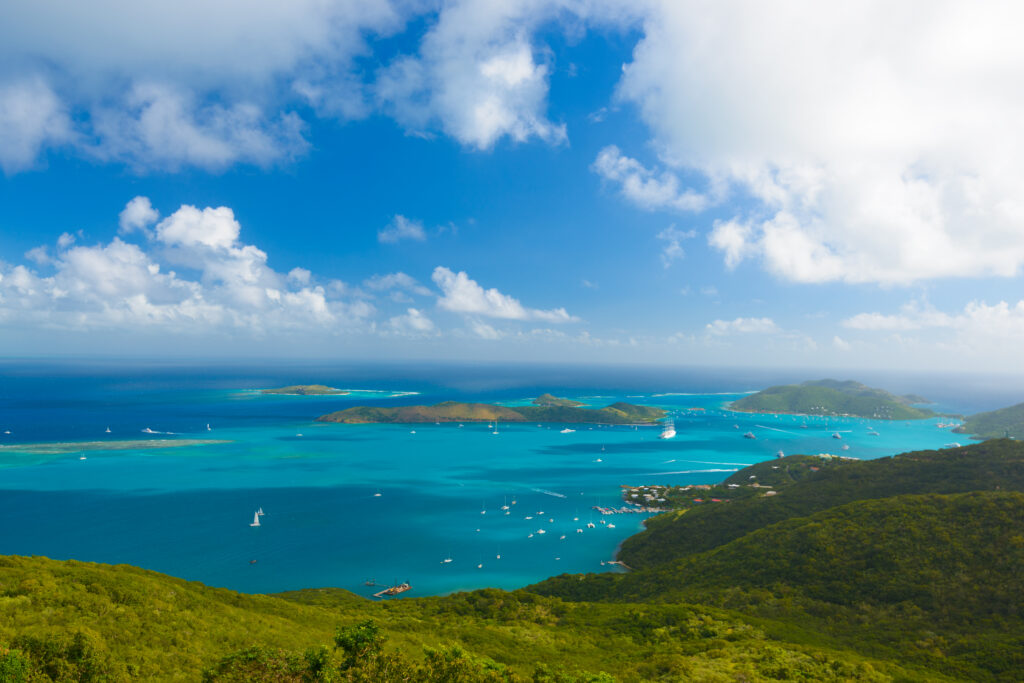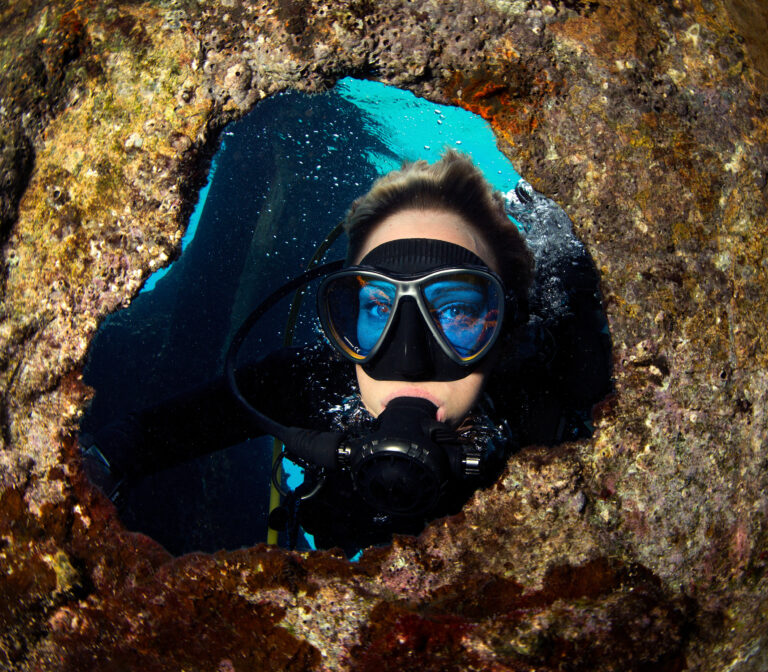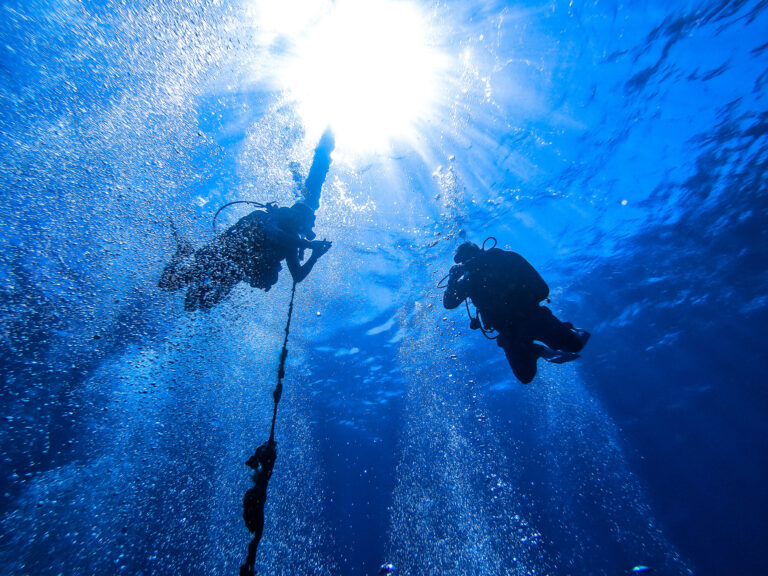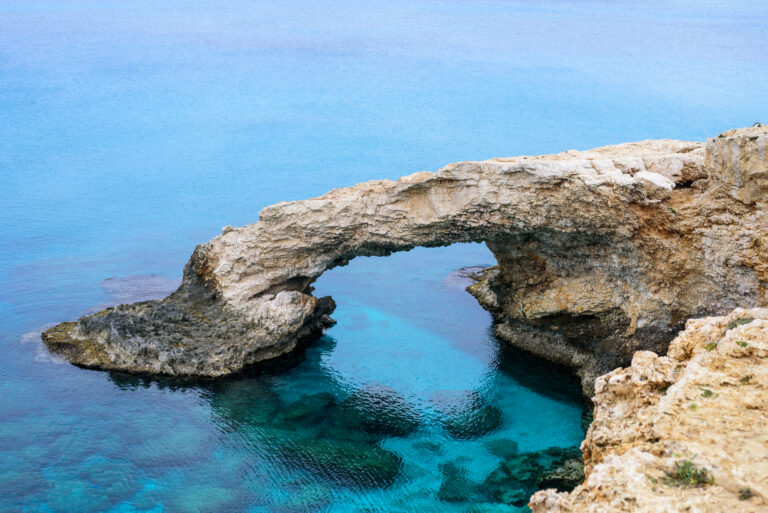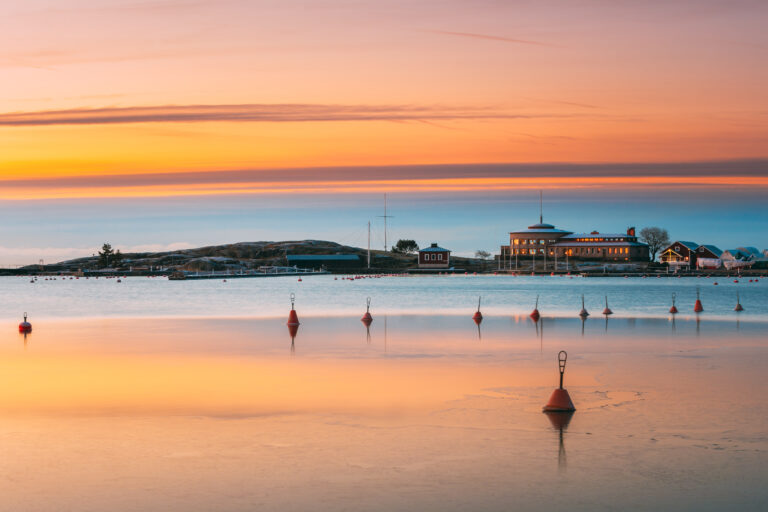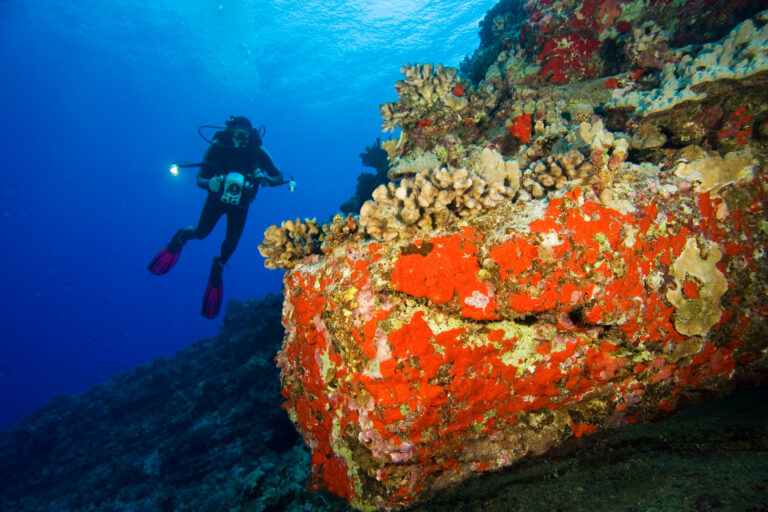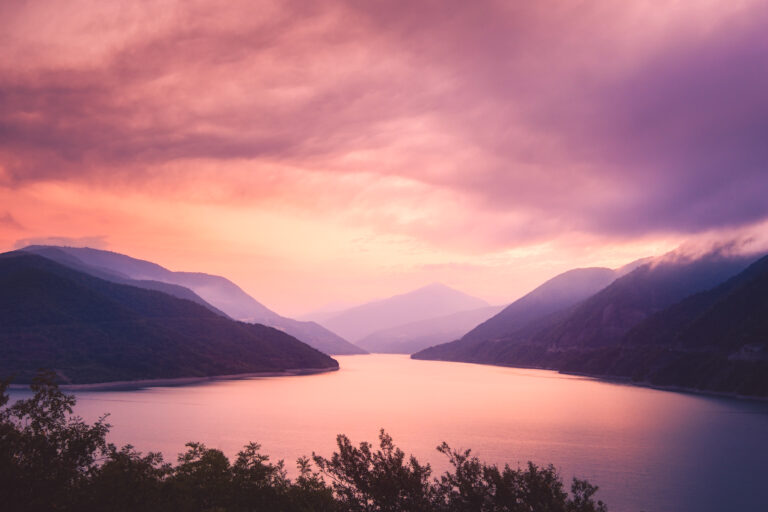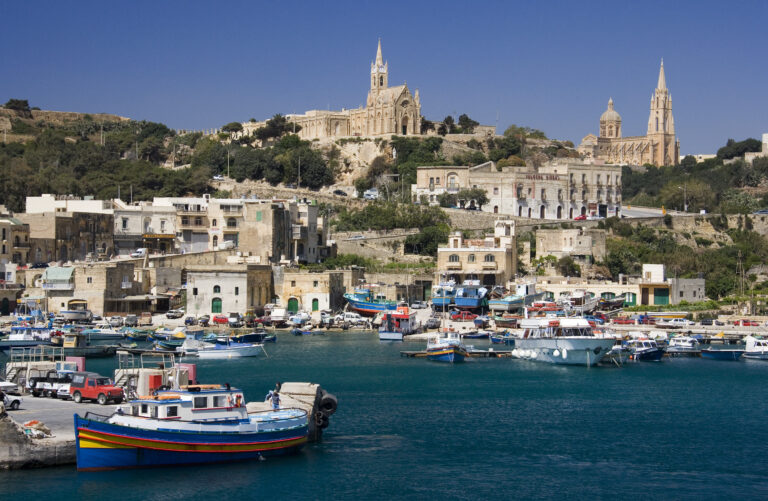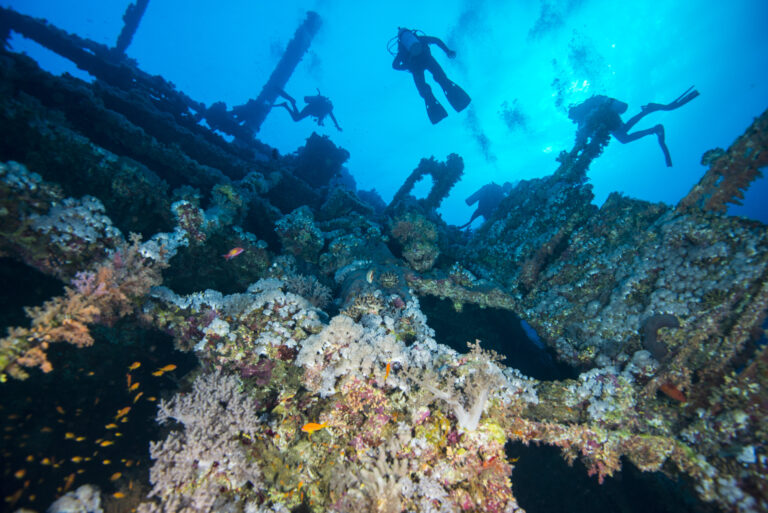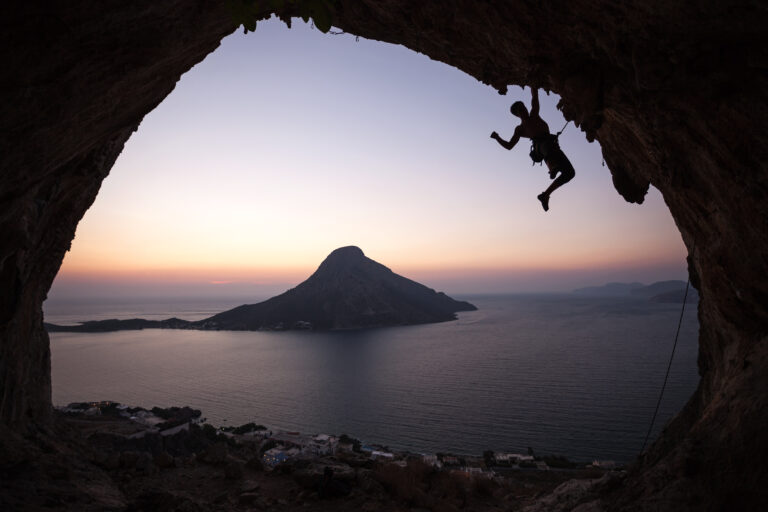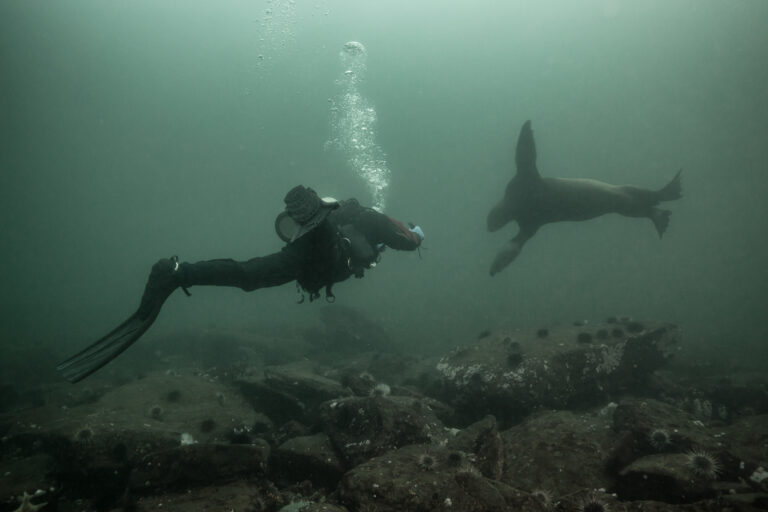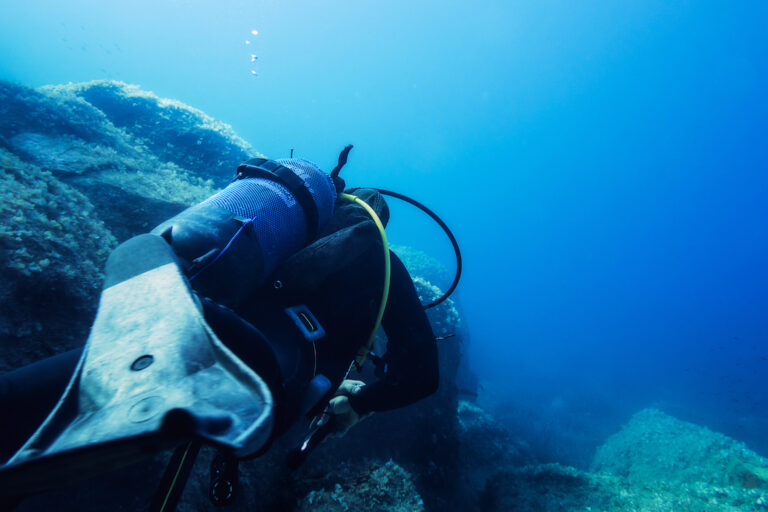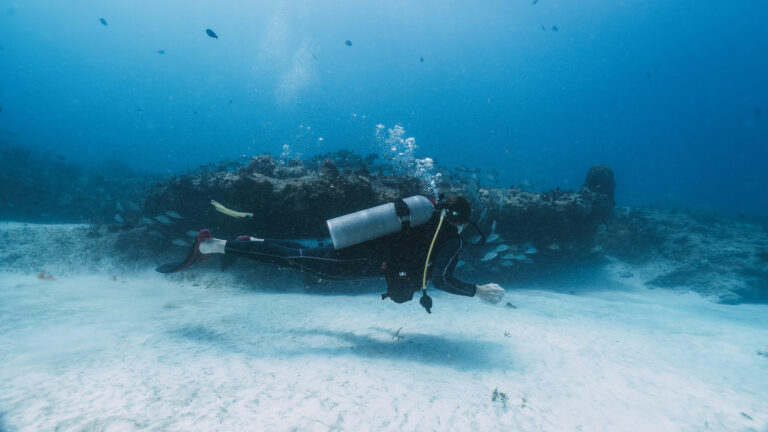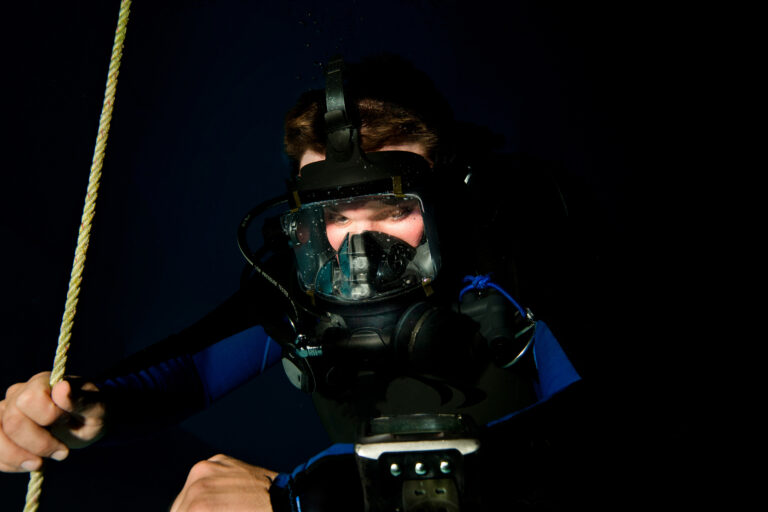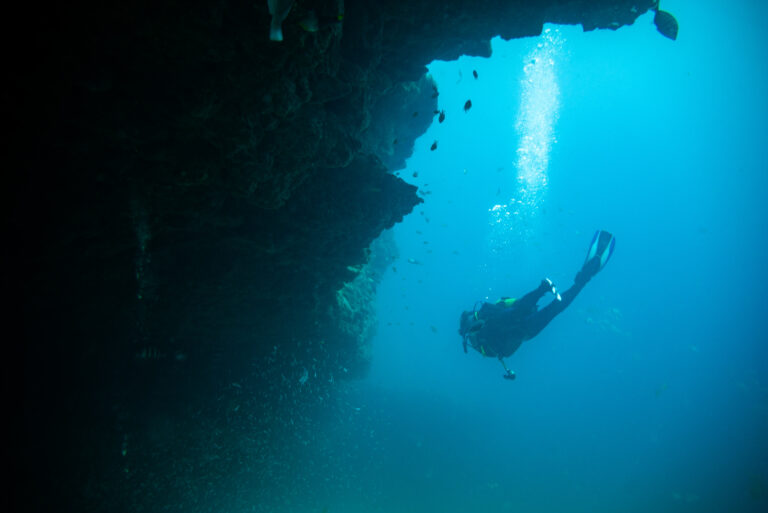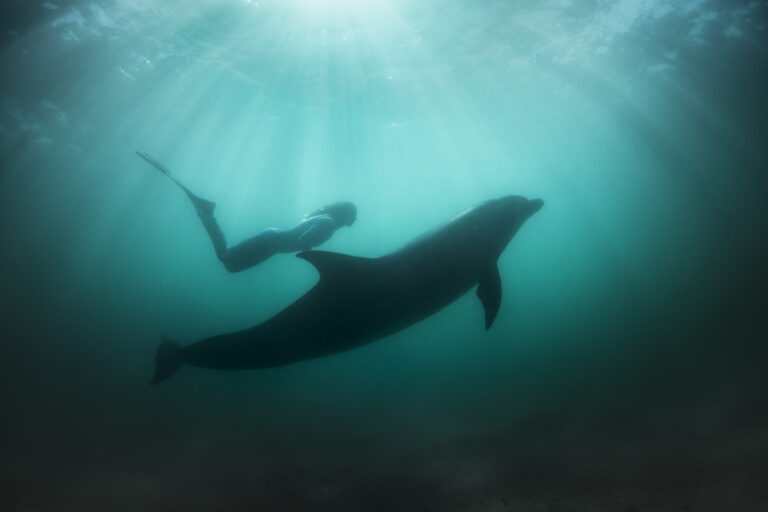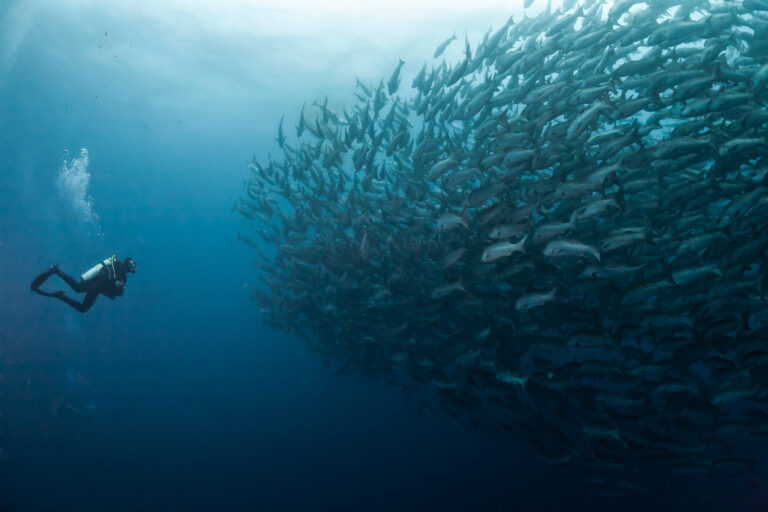SCUBA DIVERS’ TRAVEL GUIDE TO British Virgin Islands
If you are looking for a scuba diving paradise in the Caribbean, look no further than the British Virgin Islands. This archipelago of over 60 islands and cays offers a variety of dive sites, from coral reefs and wrecks to caves and pinnacles. You can explore the underwater wonders of the BVI National Park, where you can see turtles, rays, sharks, and colorful fish. Or you can dive into history and visit the RMS Rhone, a sunken ship that is one of the most famous dive sites in the Caribbean. The British Virgin Islands also have a rich culture and cuisine, with influences from Africa, Europe, and the Americas. You can enjoy the local delicacies, such as conch fritters and roti, or sample the world-famous rum at the distilleries. Whether you are looking for adventure, relaxation, or both, the British Virgin Islands have something for every scuba diver.
LOCATION AND GEOGRAPHY
Nestled in the turquoise embrace of the Caribbean Sea, the British Virgin Islands (BVI) are a scintillating archipelago comprising over 60 islands and cays, with the main islands being Tortola, Virgin Gorda, Anegada, and Jost Van Dyke. Renowned for their dramatic topography, the islands boast lush, green mountains that descend into powdery white sand beaches, surrounded by coral reefs teeming with marine life. The geography of the BVI is as diverse underwater as it is on land, with the seafloor featuring a mesmerizing mix of canyons, tunnels, and pinnacles alongside historic shipwrecks. Anegada stands out as a geological anomaly, being the only coral atoll in the volcanic BVI chain, and is encircled by the Horseshoe Reef, one of the largest barrier reefs in the Caribbean. The islands’ location, far enough north of the equator to avoid the brunt of the tropical storms and hurricanes that can affect other Caribbean destinations, makes the BVI an idyllic year-round scuba diving haven.
VISA AND ENTRY REQUIREMENTS
Before embarking on your underwater adventure to the British Virgin Islands (BVI), it’s essential to ensure that your travel documents are in order. Visitors from the United States, Canada, the European Union, and many other countries do not require a visa for stays of up to six months, provided they have a return or onward ticket, proof of accommodation, and sufficient funds for their stay. However, all travelers must present a valid passport upon arrival. It’s important to note that as of my knowledge cutoff in 2023, the BVI government may have specific COVID-19 related entry requirements, such as vaccination certificates or negative test results, so it’s crucial to check the latest travel advisories and health protocols. Additionally, if you’re planning to arrive by private boat, you must clear customs and immigration at an official port of entry. Always verify the most current visa and entry requirements with the BVI Tourist Board or the nearest British Embassy or Consulate before your trip, as regulations can change.
GETTING TO British Virgin Islands
Getting to the British Virgin Islands (BVI), a premier scuba diving destination nestled in the heart of the Caribbean Sea, is an adventure in itself. Travelers typically fly into Terrance B. Lettsome International Airport (EIS) on Beef Island, the most accessible airport in the BVI, which is connected to Tortola, the largest island, by the Queen Elizabeth II Bridge. Major airlines offer flights to the BVI with layovers in nearby hubs such as San Juan, Puerto Rico, or St. Thomas, U.S. Virgin Islands. From St. Thomas, visitors can opt for a scenic ferry ride to the BVI, which not only provides a stunning introduction to the archipelago’s turquoise waters and lush landscapes but also allows for the chance to spot marine life before even donning a dive suit. Once in the BVI, a network of inter-island ferries and charter boats makes island-hopping convenient, offering divers easy access to the archipelago’s numerous dive sites, including the famous RMS Rhone wreck and the vibrant coral reefs of Anegada.
BEST TIME TO DIVE
The British Virgin Islands (BVI) offer a scuba diving paradise with warm, crystal-clear waters that are inviting year-round, but the best time to dive these alluring waters is from September to November, just after the peak of the hurricane season when the seas are calm and underwater visibility is at its finest. During this period, the water temperature hovers around a comfortable 80°F (27°C), allowing divers to enjoy extended underwater explorations without the need for thick wetsuits. Marine life is abundant and active, with the chance to encounter sea turtles, rays, and a kaleidoscope of tropical fish amidst the vibrant coral reefs. While diving is possible throughout the year, it’s worth noting that the winter months (December to March) can bring stronger winds and the summer months (June to August) coincide with the Atlantic hurricane season, which may affect dive conditions and accessibility. Therefore, planning your dive trip in the suggested window ensures the best balance of favorable weather, optimal water conditions, and a quieter tourist season, enhancing your underwater experience in the enchanting waters of the British Virgin Islands.
ACCOMMODATION OPTIONS
In the British Virgin Islands, scuba divers can find a variety of accommodation options to suit their preferences and budgets, ranging from luxury resorts to intimate, diver-friendly guesthouses. Many of the islands’ resorts offer all-inclusive packages that cater specifically to divers, providing convenient on-site dive shops, equipment rentals, and easy access to the archipelago’s renowned dive sites, such as the RMS Rhone wreck. For those seeking a more personalized experience, charming villas and cottages are available for rent, often featuring stunning ocean views and private docks. Liveaboard boats are another popular choice among diving enthusiasts, allowing guests to wake up at a new dive spot each day without the need to return to shore. Budget-conscious travelers can opt for comfortable hostels and campgrounds that offer a social atmosphere and the opportunity to meet fellow divers. Regardless of where you choose to stay, the warm hospitality of the British Virgin Islands ensures a welcoming base from which to explore the underwater wonders of this Caribbean paradise.
DIVE OPERATORS AND DIVE SHOPS
In the British Virgin Islands (BVI), a treasure trove of underwater wonders awaits, and the region’s dive operators and shops are the gatekeepers to this aquatic paradise. With a reputation for professionalism and local expertise, BVI dive shops offer a range of services, from PADI certification courses for beginners to guided dives for the more experienced. These operators prioritize safety and environmental stewardship, ensuring that the stunning coral reefs and abundant marine life are preserved for future generations. Many shops are conveniently located near the most popular anchorages and resorts, providing easy access to the islands’ renowned dive sites, such as the RMS Rhone wreck and The Indians. Whether you’re looking to rent top-notch gear, fill tanks, or book a bespoke dive excursion, the friendly and knowledgeable staff at BVI dive shops will help you craft an unforgettable underwater adventure tailored to your skill level and interests.
TRANSPORTATION WITHIN British Virgin Islands
Transportation within the British Virgin Islands (BVI) is an essential aspect of your scuba diving adventure, offering a blend of convenience and the opportunity to soak in the stunning Caribbean scenery. The primary mode of inter-island travel is by sea, with regular ferry services connecting the major islands such as Tortola, Virgin Gorda, Anegada, and Jost Van Dyke, allowing divers to easily access different dive sites and island amenities. For a more personalized experience, you can charter private boats or yachts, which provide the freedom to explore secluded dive spots at your own pace. On the larger islands, taxis and rental cars are available for land-based excursions, though it’s important to remember that driving is on the left side of the road. For those looking to save time, inter-island flights are an option, with small planes connecting the main airports, offering a bird’s-eye view of the archipelago’s crystal-clear waters and lush landscapes. Regardless of your choice, the BVI’s transportation network is designed to enhance your diving journey, ensuring that each underwater treasure is just a short trip away.
CURRENCY AND PAYMENT METHODS
In the British Virgin Islands (BVI), the official currency is the US Dollar (USD), which is convenient for North American travelers and widely accepted throughout the islands. Credit cards, particularly Visa and MasterCard, are accepted at most dive shops, resorts, and restaurants, but it’s advisable to carry some cash for smaller establishments, tips, and remote locations where electronic payments may not be possible. ATMs are available on the main islands, such as Tortola and Virgin Gorda, but can be scarce on smaller islands, so plan accordingly. It’s also worth noting that some businesses may add a service charge for credit card transactions. Traveler’s checks are less commonly used but can still be cashed at banks. As always, it’s prudent to inform your bank of your travel plans to avoid any issues with card usage abroad. For the smoothest financial experience while enjoying the underwater wonders of the BVI, divers should prepare a mix of payment methods to ensure they can cover costs both above and below the water.
LANGUAGE AND COMMUNICATION
Language and communication are key components to ensure a smooth and enjoyable scuba diving experience in the British Virgin Islands (BVI). English is the official language, spoken with a delightful West Indian lilt, making it easy for English-speaking divers to communicate with local dive operators, boat captains, and fellow divers. However, given the BVI’s popularity with international travelers, don’t be surprised to hear a mix of other languages, particularly Spanish, French, or Italian, among the dive community. It’s advisable to familiarize yourself with basic scuba diving hand signals, universally recognized within the diving world, to facilitate underwater communication. Dive briefings are typically conducted in English, and many dive shops can provide materials in other languages upon request. Clear communication with your dive guide about your experience level and any concerns is essential for a safe and pleasurable dive. Whether you’re discussing dive sites, marine life, or equipment needs, the friendly and accommodating nature of the BVI locals will ensure your queries and conversations enhance your diving adventure.
LOCAL CULTURE AND ATTRACTIONS
The British Virgin Islands (BVI), a volcanic archipelago in the Caribbean, is not only a premier scuba diving destination but also a vibrant tapestry of rich cultural heritage and natural attractions. Beyond the allure of its underwater wonders, the BVI boasts a lively local culture steeped in a history of Arawak and Carib peoples, European colonialism, and African influences, all of which are celebrated through music, dance, and festivals like the Emancipation Festival. On land, visitors can explore the ruins of historic sugar plantations, such as the Annaberg Sugar Plantation on Tortola, or the Callwood Rum Distillery, which offers a taste of the islands’ storied past. The BVI’s natural attractions are equally captivating, with the famous Baths on Virgin Gorda, where granite boulders create mystical grottoes and pools, and the lush trails of Sage Mountain National Park offering panoramic views of the archipelago. Whether you’re mingling with locals at a beachside bar, savoring the fusion of Caribbean flavors, or soaking in the sun at one of the many pristine beaches, the British Virgin Islands offer a delightful blend of cultural and natural attractions that enrich the scuba diving experience.
CULTURAL ETIQUETTE AND TIPS
When diving in the British Virgin Islands (BVI), it’s important to embrace the laid-back and friendly culture while respecting local customs and the environment. The BVIs are known for their warm hospitality, but it’s crucial to be polite and courteous to both residents and fellow divers. Greet people with a smile and a simple “Good morning” or “Good afternoon,” as common courtesy goes a long way. When on the islands, dress modestly outside of beach areas, and be mindful of private property signs when exploring. Environmental conservation is highly valued, so ensure you follow all guidelines related to marine life protection—avoid touching or taking marine life, and be conscious of your fins to prevent damage to coral reefs. Tipping is customary and greatly appreciated; consider offering 10-15% for good service on dive boats and in restaurants. Lastly, the BVI operates on ‘island time,’ so patience is a virtue that will enhance your experience in this tropical paradise.
LOCAL LAWS AND REGULATIONS RELEVANT TO TOURISTS
When planning a scuba diving trip to the British Virgin Islands (BVI), it’s essential to familiarize yourself with local laws and regulations to ensure a safe and lawful experience. The BVI requires all divers to be certified and dive with a BVI-recognized dive operator unless you have a permit for independent diving, which is rarely granted. The use of dive flags is mandatory to alert boats to the presence of divers below. Spearfishing is heavily regulated, generally requiring a license, and is forbidden in National Parks, where the collection of any marine life is prohibited. Anchoring on coral reefs is illegal; mooring buoys are provided in popular dive spots to prevent damage. Additionally, the BVI enforces strict environmental laws to protect its delicate coral reefs and marine habitats; touching or taking coral is illegal, as is the removal of any marine organism, dead or alive. Penalties for non-compliance can be severe, including fines and possible imprisonment. Always check for the most current regulations with your chosen dive operator or local authorities before diving.
SAFETY TIPS AND EMERGENCY CONTACTS
When planning a scuba diving trip to the British Virgin Islands (BVI), safety should be your top priority. Always dive within your certification limits and ensure that your equipment is in good working order before setting out. It’s crucial to be aware of the local weather conditions and sea currents, as they can change rapidly. Dive with a buddy and maintain a clear dive plan, including depth and time limits. Familiarize yourself with the local marine life to avoid harmful encounters. In case of an emergency, know the location of the nearest recompression chamber, which is on the island of Tortola, and have the contact information for the BVI Hyperbaric Chamber (+1 284-494-2096) readily available. Additionally, keep the contact details of VISAR (Virgin Islands Search and Rescue) at hand (+1 284-499-0911), as they are the primary emergency response for maritime incidents. Ensure that you have appropriate insurance that covers scuba diving accidents and emergency medical evacuations. By following these safety tips and having emergency contacts accessible, you can help ensure a safe and enjoyable diving experience in the stunning waters of the British Virgin Islands.
HEALTH AND TRAVEL INSURANCE
When planning your scuba diving adventure in the British Virgin Islands, it’s crucial to consider your health and travel insurance options. The BVI offers some of the Caribbean’s most stunning underwater experiences, but diving always carries inherent risks, and the remote nature of certain dive sites can complicate access to medical facilities. Ensure that your travel insurance includes comprehensive coverage for scuba diving activities, including potential hyperbaric treatment, medical evacuation, and repatriation. Verify that your policy is valid for the depth to which you plan to dive, as some insurances have depth limitations. Additionally, it’s wise to have a thorough medical check-up before your trip and to bring any personal medication you may need, as local pharmacies may not stock everything you’re accustomed to. By securing the right insurance and taking health precautions, you’ll be free to immerse yourself in the BVI’s breathtaking underwater world with peace of mind.

